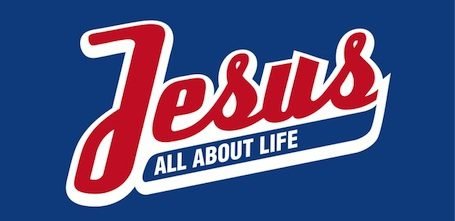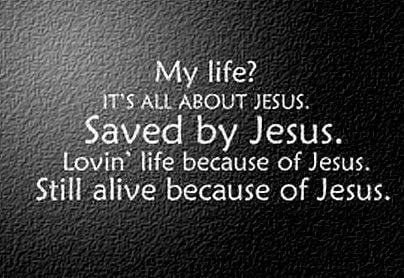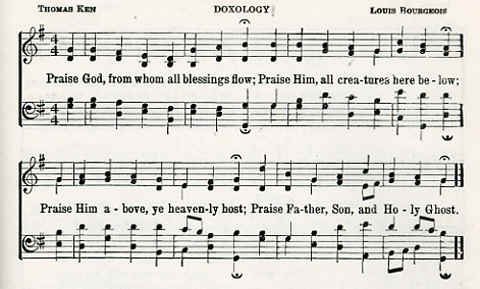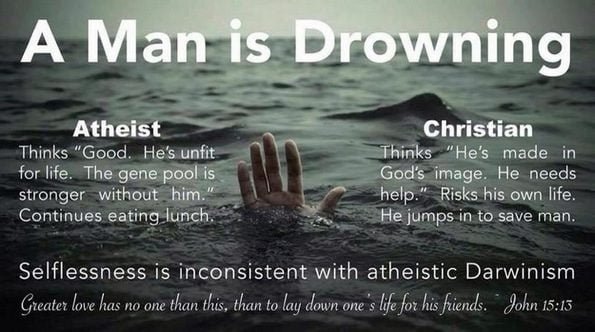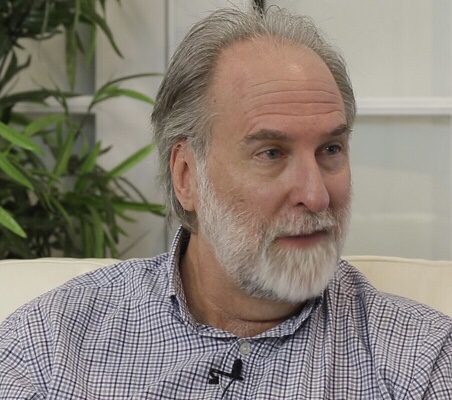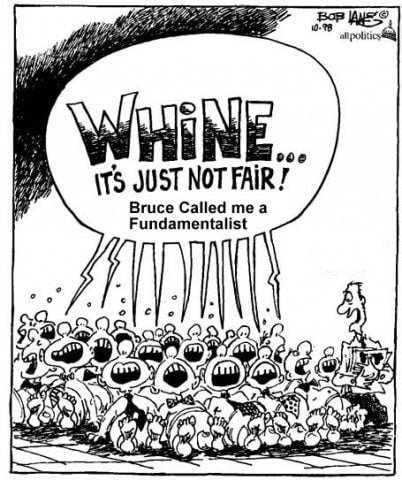
I grew up in a Fundamentalist Baptist home. I spent the first fifty years of my life regularly attending Christian churches. Deeply immersed in the Christian life and way of thinking, I never doubted that I would become anything other than a Baptist preacher. I was five years old when I first told my mother that I wanted to be a preacher when I grew up. Not a fireman, not a police officer, not a baseball player — a preacher. Unlike most people, I never went through the angst of trying to figure out what I wanted to do with my life. From the time of my conversion at age fifteen to the moment I walked away from the ministry, I never doubted that God had called me to be a preacher of the gospel. I was what people call a true believer®. My life oozed Jesus, the Bible, and my visible, dedicated commitment to the Baptist church. While many people today question whether I was a “real” Christian, no one during my time in the ministry ever questioned that I was anything but a sincere follower of Jesus Christ. Anyone who suggests otherwise is deliberately ignoring the facts.
Yet, here I am at age sixty-four, no longer in the ministry, no longer Christian, and now an outspoken atheist and critic of Evangelical Christianity. I attended Midwestern Baptist College in the 1970s. During its sixty-plus-year history, thousands of students attended classes at Midwestern. Hundreds of men went on to pastor churches or work in some other capacity at churches or Christian educational institutions. Some men went on to be missionaries or evangelists. Women married preachers, went to the mission field, or became Christian school teachers. While Midwestern never had a large student body, its students and graduates can be found serving Jesus all across the globe. Yet, out of all these students, as far as I know, my wife and I are the only two who have publicly renounced Christianity. While I am certain other former Midwestern students are atheists or agnostics, I am unaware of their existence. Perhaps they do not want the notoriety and hassle that come from publicly renouncing Midwestern’s God. I know well the price one must pay when rejecting the tribal God. Polly and I lost dozens of friends and colleagues as a result of our public declaration of unbelief. We are estranged from family, have few friends, and are forced to live with the whispers and gossip of local Christian residents who treat us as some sort of exotic zoo animals. We willingly endure these things because we value honesty and intellectual integrity above cultural or social acceptance.
There are times when I find myself wondering why I cannot be like everyone else. I loved preaching and teaching. I loved helping others. I loved rolling up my sleeves and getting my hands dirty in the work of the ministry. Yet, despite loving these things, they were not enough to keep me in the fold. Why is it my former colleagues and the students I attended college with are able to continue believing and I am not? While it would be tempting to say that I am intellectually superior to them, I know this is not the case. It would be easy to dismiss everyone with a wave of the hand and a snide — bunch of illiterate hillbillies — comment, but I know that in doing so I would be painting with too broad a brush (a brush I wish atheists would quit using).
Perhaps there was something wrong with my faith. I have often asked myself this question. Was there something about my Christian experience that was in some way defective? I don’t think so. While I certainly can see how someone might — by taking a small sample size of my life — conclude that the blame for my faithlessness rests solely on my shoulders, but my life, when taken as a whole, reflects that I was one who truly believed in God, Jesus, and the teachings of the Bible. Yet, I am an atheist. While I doubt I will ever fully understand why I cannot be like others, I have come to a few conclusions about the trajectory of my life and how I arrived at where I am today.
I have always valued intellectual pursuit. While I spent many years bouncing from wall to wall within the Evangelical box, even within these constraints I diligently sought to know the truth. This is why I left the Independent Fundamentalist Baptist (IFB) church movement in the late 1980s. It is also why I became a Calvinist and then later abandoned Calvinism as I embraced more of a works-oriented social gospel. While many of my former colleagues in the ministry have never deviated from the theology they were taught at Midwestern Baptist College and other Evangelical institutions, I was unwilling to accept certain beliefs as “truth” just because it was the official doctrine of Midwestern or whatever group I was a part of. Years ago, I attended one of the monthly meetings of the Buckeye Independent Baptist Fellowship (BIBF). It was a well-attended meeting, and every preacher had on the uniform — suit and tie. Not I. I wore an ivory-colored sweater. The reason I remember this is because the host of the meeting pointed out the fact that I was wearing a sweater. He found my attire amusing, yet he thought that it was wonderful that I was unwilling to follow the herd’s dress code. Of course, I spent the remainder of the day having corncob in their ass preachers look at me as some sort of liberal compromiser. Closer friends in attendance ribbed me about dressing so casually. I think this story accurately reflects how I viewed life then and still view it today. Unwilling to acquiesce to tribal demands, I forged my own path. Friends and colleagues viewed me as double-minded, whereas all I was trying to do is be honest and follow the path wherever it led. I am, today, still on this path. Who knows where I might yet end up? 🙂
I have never been a go-along-with-the-crowd type of person. Even though I was a committed Fundamentalist, I didn’t do something just because big-name preacher so and so did. As any observer of Evangelical Christianity can tell you, there has been a tremendous amount of upheaval over the past fifty years. Up until the 1970s, the 1950s style of doing church was considered the Evangelical way of doing things. Today? It is hard to find a church that still does things — as IFB preachers call it — the “old-fashioned” way — old-fashioned meaning “the way things were done in the days of Ozzie and Harriet.” While my style of ministry and preaching changed somewhat over the years, I made these changes, most often, for pragmatic reasons. I firmly believed that churches and preachers must adapt their methodologies to the times. While bus ministries and door-to-door evangelism once yielded great numerical growth, these methods no longer work — regardless of what head-in-the-sand IFB preachers might tell you. Churches unwilling to adapt only hurt themselves, leading to attendance decline and closures.
Even as an atheist, I am resistant to following the herd. The atheist “movement” and Evangelicalism have more than a few things in common. In Evangelicalism, certain preachers are revered and considered mountaintop dispensers of wisdom and knowledge. So it is with atheists. All one has to do is look at the speaker lineup for atheist and humanist conferences. Instead of embracing the diversity of the atheist community, these conferences often become little more than the atheist version of star-powered award shows. And I get it. People are not going to fly or drive hundreds of miles to hear atheist nobodies. As with Evangelicals, many atheists seem to value the pronouncements of big-name speakers and writers over those of everyday, run-of-the-mill, garden-variety atheists. As with Evangelicals, the only way to get in the game is to play by the rules. If you are unwilling to play by the rules, you can expect to not be invited to play the game. I have accepted that this is the way things are. This is the price I pay for maintaining freedom and autonomy. A price, by the way, I am more than happy to pay.
As many of you know, I am working ever-so-slowly on a book. I think the book will be something that doubting Evangelicals and Evangelicals-turned-atheists will find helpful. As with all writers, I hope that my book will become a New York Times bestseller. One way to sell a lot of books is to get well-known atheists to write endorsements. I decided not to do this. While I know a handful of well-known atheists, most of my involvement with atheists comes through this blog and social media. I remain, to this day, a blue-collar laborer, unknown, but happy to have an opportunity to lend my small voice to the collective objection to evangelical Christianity. Knowing that I will never be asked to join the A-Team, I content myself with helping people break free of Evangelicalism’s pernicious grasp. While it would be fun and somewhat rewarding to speak to thousands of like-minded atheists, such an experience pales in comparison to helping people find their way out of the Fundamentalist maze.
I have said all of the above to provide some context for my answer to the question, why can’t I be like everyone else? I can’t be like everyone else because I am me. That is the simplest explanation. I am who I am and my life is what it is. I value honesty over conformity and independence over sameness. These values have only gotten stronger now that I am an atheist. No longer burdened by Evangelicalism’s written and unwritten code of acceptable belief and practice, I am free to be whoever, and whatever I want to be. I recognize that living my life this way might result in me not being accepted by the larger atheist community. I know there are pro-life atheists and Republican atheists who understand what I am talking about. Conformity — even among atheists — is often demanded if one wants to join a particular club. This is why atheism is so fractured. Proponents of various atheistic groups — Atheism+, mythicism, social justice, feminism, and the destruction of all religion — demand fidelity to that group’s doctrines. They are, in many ways, not much different from Fundamentalists, with their rigid codes of belief and conduct. Many atheists have a need to be part of something larger, so they are willing to surrender their intellectual autonomy to be a part of a group. I am unwilling to do so, and this is why, in the end, I cannot be like everyone else.
I am more than willing to work with atheist groups and individual atheists when their causes align with mine. However, as I learned from my battles with the proponents of Atheism+, it is all or nothing for many atheists. Either you accept the 10 Commandments of that group’s dogma or they will have nothing to do with you. This is why more than a few atheists have questioned my atheism. If I dare write something that runs afoul of the received atheist faith, as with Evangelicals, my commitment to atheism and humanism is questioned. If I suggest something that gives the hint of accommodationism, I am accused of promoting religion. I have received countless emails from atheists over the years who object to something I have written. If I say I am agnostic on the God question, the defenders of true atheism® are sure to let me know that they think I am a hypocrite and have some sort of religious hangover. While these letters used to bother me, I now understand that Fundamentalist thinking can be found in every group. There is nothing I can do about this. I am committed to being open and honest about my life and I am committed to passionately writing about my beliefs and worldview. If these things do not meet the criteria for acceptance into the atheist college of cardinals, so be it. I value personal freedom and intellectual integrity far more than I do membership in any group. If this limits me in some way, I am willing to accept that this is the price I must pay for being true to self. These traits will be valued by many, and that is enough satisfaction for me to continue preaching the gospel of godlessness.
Bruce Gerencser, 68, lives in rural Northwest Ohio with his wife of 47 years. He and his wife have six grown children and sixteen grandchildren. Bruce pastored Evangelical churches for twenty-five years in Ohio, Texas, and Michigan. Bruce left the ministry in 2005, and in 2008 he left Christianity. Bruce is now a humanist and an atheist.
Your comments are welcome and appreciated. All first-time comments are moderated. Please read the commenting rules before commenting.
You can email Bruce via the Contact Form.

